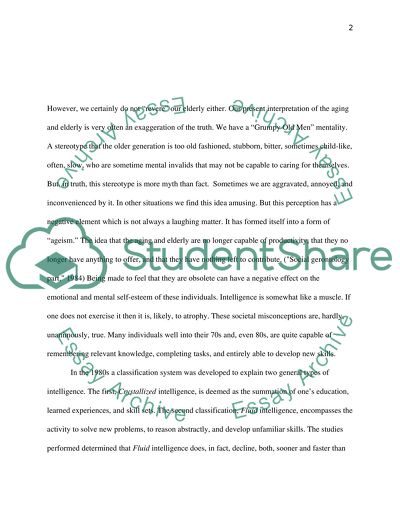Cite this document
(“Gaining Years and Losing Intelligence Essay Example | Topics and Well Written Essays - 1250 words”, n.d.)
Gaining Years and Losing Intelligence Essay Example | Topics and Well Written Essays - 1250 words. Retrieved from https://studentshare.org/psychology/1452446-does-intelligence-decline-in-late-adulthood
Gaining Years and Losing Intelligence Essay Example | Topics and Well Written Essays - 1250 words. Retrieved from https://studentshare.org/psychology/1452446-does-intelligence-decline-in-late-adulthood
(Gaining Years and Losing Intelligence Essay Example | Topics and Well Written Essays - 1250 Words)
Gaining Years and Losing Intelligence Essay Example | Topics and Well Written Essays - 1250 Words. https://studentshare.org/psychology/1452446-does-intelligence-decline-in-late-adulthood.
Gaining Years and Losing Intelligence Essay Example | Topics and Well Written Essays - 1250 Words. https://studentshare.org/psychology/1452446-does-intelligence-decline-in-late-adulthood.
“Gaining Years and Losing Intelligence Essay Example | Topics and Well Written Essays - 1250 Words”, n.d. https://studentshare.org/psychology/1452446-does-intelligence-decline-in-late-adulthood.


